While network television has been floundering in a morass of reality shows and the occasional decent program, I think that we are living in a golden age of cable television. The paid format of the networks and on-demand programming (at least in the United States) has allowed for a new blossoming of great television that can afford to explore intriguing ideas and not shy away from violence and sex to boot. Channel 4, Kudos, and AMC have recently released a drama called Humans that continues this trend. To put it simply, this show is a master class in television that merges theme and imagination to create a drama that is almost scarily plausible. Here are a few reasons why (with next to no spoilers):
1. What happens when the line between man and machine is almost completely erased?
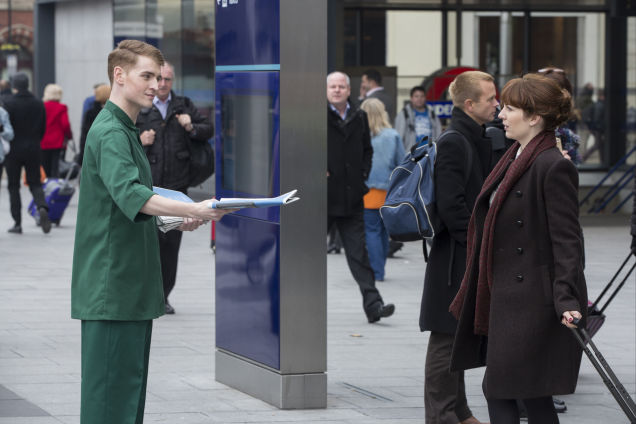
Will they adopt new lives as street corner dancers?
Humans is a story that ultimately centers around what it means to be, well, human. Taking place in a near future version of the United Kingdom, the show centers on the Hawkins family and several other characters that struggle with the rise of the Synths, which are a far more advanced version of the robots that are being worked on right now. These are described as having completely revolutionized the economy and replaced a wide variety of labor that was once performed by humans, whether it is household tasks, industrial farming, or anything else that can be imagined.
Of course, not every Synth is up to the task. Some of them have developed a form of consciousness, such as Niska (played masterfully by Emily Berrington). These actors are arguably the stars of the show with interesting performances from top to bottom, whether it is the portrayal of a confusing mixture of humanity and programming as shown by Anita/Mia (Gemma Chan) or the more human side of things as shown by Leo (Colin Morgan).
The idea that drives the plot of this first season is if the consciousness of these specially created Synths can be given to the others, which raises questions about what would become of society if the machines were considered to be alive. Speaking of which…
2. How would people cope with these changes?
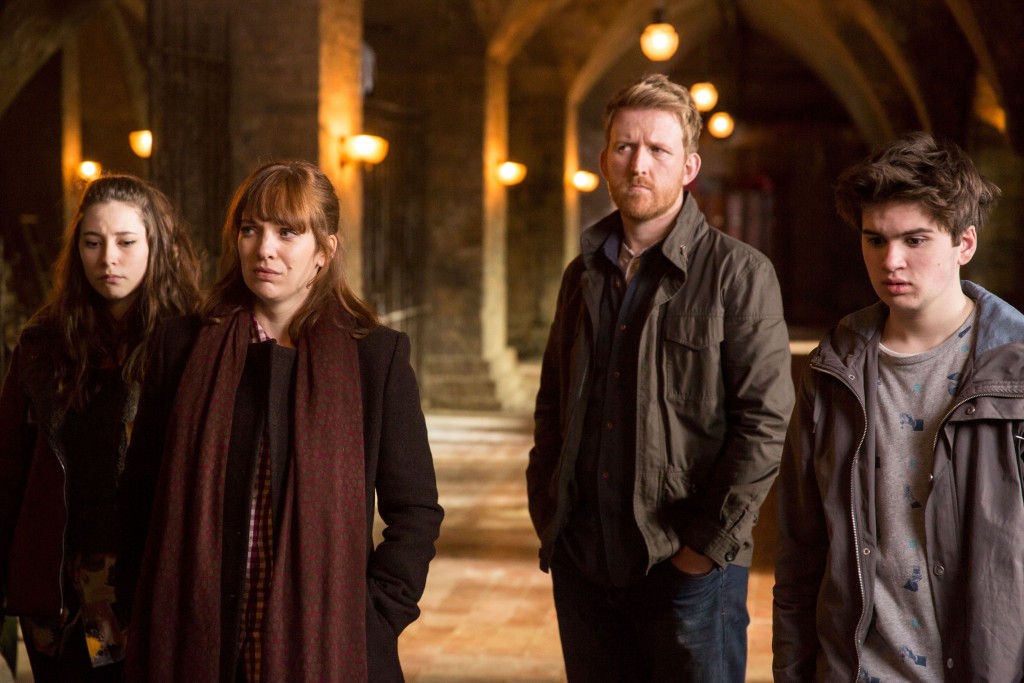
We’ve seen some horrible things.
In another master stroke of unconventional storytelling, this show sometimes takes a breather to point out the resentment and anger that might rise in the face of the mass replacement of humans with robotic labor. Whether it is the formation of political groups or the outright creation of clubs that like to beat down Synths, the British of this world don’t appear to like the fact that their livelihoods have been completely changed. For some people like the Hawkins family, it can be argued that the appearance of the Synths would be a net positive over time. For others, not so much.
It is even more satisfying to note that the show does a good job of leaving it up to the viewer to decide what they would do. Much of the time, there are no real sides being taken here and morally gray ethics are everywhere, which will be detailed even further with my next entry.
3. Would Synths help or tear apart relationships?
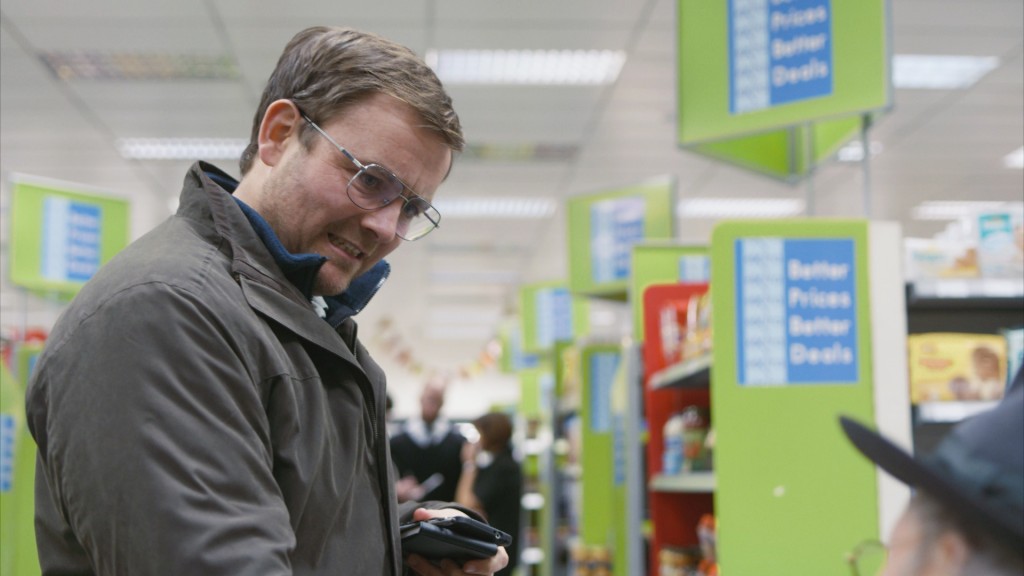
He wants it harder, better, faster, stronger.
In another interesting exploration of the human mind, Humans takes a look at how the existence of Synths can turn the idea of love and sexuality upside down, especially on unsuspecting people like the minor characters in this show. In one such part of the story, Jill Drummond (Jill Halfpenny) is the disabled wife of a detective that has ordered a Synth for the home, but her husband, Pete (Neil Maskell), is naturally suspicious of this event and their strained marriage begins to crack at the seams because of it.
The show explores these themes in a way that is mind-bending to watch, especially since the conscious Synths are deeply involved in this part of the story. As I mentioned above, many questions can arise that the viewer will struggle to answer. Can a Synth can really feel for a person the way that a human does, or is it just a bad substitute? Where is the line when you interact with one? How would you feel if you suddenly found out that you actually saw a conscious one as a person?
4. If machines suddenly became conscious, what would be their end game?
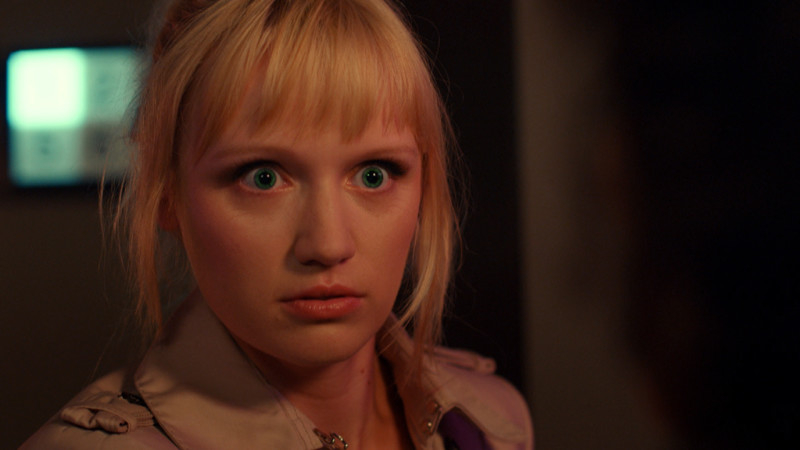
Hi, my name is Niska and I am a rage-o-holic.
Humans could be also be considered to be a satire because of how it pokes fun at other stories that involve robotics. As shown in the story, great humor can also serve a purpose because we would have to ask ourselves more questions: Would machines actually want to do that (a la Terminator) or are they just as geared towards survival as we are? Could they be selfish assholes or a loving and caring part of a family… or both?
Conclusion
As you can see, there are no easy answers to any of the presented ideas. You might have wanted me to go into spoilers to expand upon what I think about the story, but that would be doing a disservice to you and I would have a hard time looking like I wasn’t paid off by AMC.

Give me my paycheck now.
Experience this show for yourself.
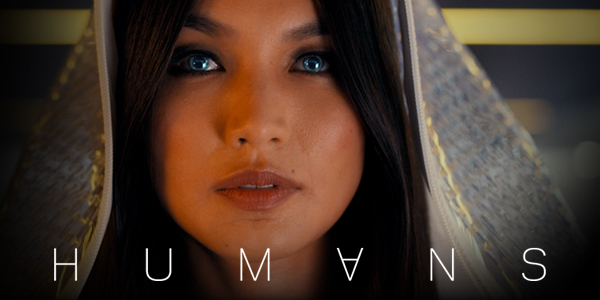
No Comments Yet